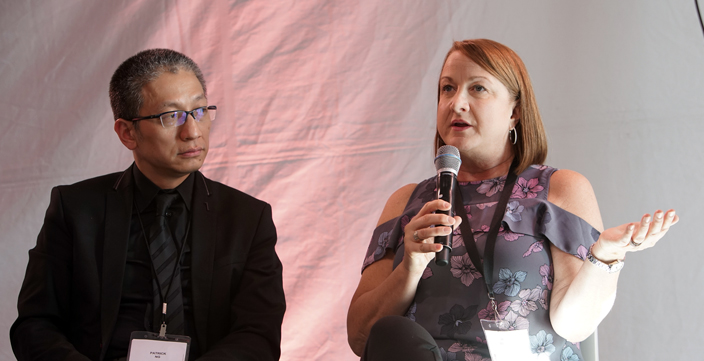On the final day of MakeUp in Los Angeles, I joined other product category experts to lead a roundtable about the advances and market drivers regarding makeup applicators. More and more cosmetic companies are realizing that the applicator really matters to the success of their products. Companies spend so much time and money perfecting their formulas; if they then opt for an inexpensive or single-use applicator, it can negatively affect how the product ultimately looks and feels to the user.

Brush performance extends beyond the brush head shape – the choice of fiber can determine how the brush collects and holds product, how it feels on the skin and, most importantly, how it lays down the product. Besides high-functionality, there’s also growing demand from brands for innovative decoration methods as a way to differentiate from the competition but yet still communicate the brand image.
The right applicator can highlight the beauty of a formula and create a much better product experience for the user. It’s a critical piece of the product puzzle and one not to be overlooked.
Consumer Trend: Animal-Free Alternatives
As consumers become more and more educated, thanks to social media and other networking advances, they realize that brushes have predominately been made using animal hair.
One of the interesting stats mentioned at the roundtable was that 69% of surveyed consumers stated that if they knew their makeup brushes were made with animal hair, they would look for an alternative, animal-free brush. Whether it’s an ethical decision as consumers seek vegan or cruelty-free products, or for higher quality goals by the brand, the benefits of animal-free fibers are broad.
Not All Synthetic Fibers Are Created Equal
Taiki has spent a great deal of research into the technology of synthetic fibers and the various aspects of the fiber. Texture, taper and tipping all impact product application.
We launched the Tafre+ and Tafre-g fibers in response to our R&D as “best and better” animal-free brush sets. The Tafre brush fibers are engineered using 28% annually renewable plant-based ingredients. The result is a higher-quality, “green” brush that has an antibacterial feature extruded into the fiber. These fibers are stronger than other synthetics, including PBT/ Takelon, resulting in less breakage and fewer loose fibers during application. As for performance and functionality, see how Tafre brush fiber (which is 100% animal-free) compares to a traditional animal hair product.
For more insights from MakeUp in Los Angeles, or to learn more about the possibilities for your makeup applicators and brushes, contact us today.
Join the conversation with the hashtag #Makeupin